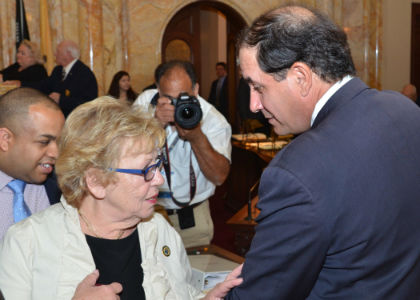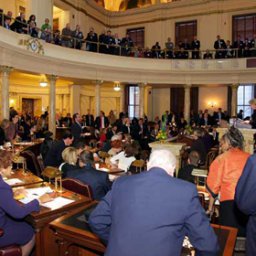
Bill Would Protect Those Who Seek Help for Overdose Victims
TRENTON – Legislation sponsored by Senator Joseph F. Vitale and Senate Majority Leader Loretta Weinberg that would protect good Samaritans who call 911 to seek medical assistance for someone experiencing a drug overdose was approved today by the full Senate and now heads to the Governor’s desk.
“The leading cause of accidental death in New Jersey is no longer automobile accidents, but drug overdoses,” said Senator Vitale (D-Middlesex). “Many of the hundreds of New Jersey men and women who die each year from drug overdoses could have been saved if those with them when they overdosed were not afraid of arrest or prosecution for seeking emergency medical attention. By creating a limited immunity from prosecution for individuals who call for medical assistance for an overdose victim, we can hopefully keep that person alive long enough to get them into a substance abuse treatment program, so they can get back their lives.”
“The Good Samaritan Emergency Response Act” (S-851/A-578) would provide limited immunity for certain individuals who seek medical assistance for someone experiencing a drug overdose. Neither the overdose victim nor the individual who seeks medical assistance for the victim could be arrested, charged, prosecuted or convicted for obtaining, possessing, using or being under the influence of a controlled dangerous substance, possessing drug paraphernalia or needles, inhaling or possessing any toxic chemical, or unlawfully obtaining, attempting to obtain or possessing prescription drugs. Additionally, they would receive immunity for any penalty for a parole, probation or restraining order violation.
The bill would treat the fact that the person sought medical assistance for someone experiencing a drug overdose as a mitigating factor in a prosecution for other drug-related offenses. It would also provide the good Samaritan with an affirmative defense against prosecution if the overdose leads to the death of the victim. Under current law, a person who manufactures, distributes or dispenses Schedule I and II controlled-substances such as heroin, methamphetamine or cocaine is liable for the death that results from the injection, inhalation or ingestion of that substance and is guilty of a first-degree crime.
“Calling for help in an effort to save someone’s life should never be a crime,” said Senate Majority Leader Weinberg (D-Bergen). “This legislation will go a long way to ensuring that those experiencing a drug overdose are not abandoned during their time of need and that those who are able to call for help, do so without being afraid of getting into trouble. Our public policy needs to reflect our state and its residents’ values and this bill does that by proving that people’s lives are important and worth saving.”
The bill is similar to the “9-1-1: Lifeline Legislation,” enacted in 2009, which provides immunity to underage drinkers if they call for medical assistance for another underage person whose life is endangered due to excessive alcohol consumption.
Connecticut, New Mexico, New York, Washington State and Illinois have enacted similar laws to the “The Good Samaritan Emergency Response Act.”
The bill was approved by the full Senate with a vote of 21-10. It was approved in the Assembly in May.


